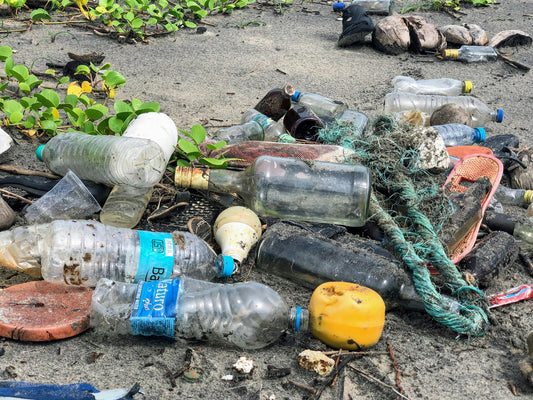Share
Did you know that the waters off the coast of Norway are like a symphony of sounds for the local marine life? Unfortunately, that symphony is turning rather discordant, thanks to noise pollution! When Dr. Heike Vester, a biologist, hit the 'Play' button on her audio recordings from the depths of the Norwegian fjords, the sounds that filled the room weren't just the clicks and songs of whales, but also the rumbling of boat engines and even the shocking explosions from seismic airguns used in oil and gas exploration.
The Unseen Consequences of Noise Pollution:
Our underwater friends, especially whales, use sounds much like we use our vision. Imagine having a bright light flashed into your eyes when you're trying to navigate a dark room. Unpleasant, right? Now you get a glimpse of what it's like for whales when they're exposed to loud noises under the sea. This isn't just about interrupting their conversations: the noise effectively blinds their primary sensor for navigating underwater.
Your Friend's Friendly Neighborhood: Vestfjorden:
Vester's home in Bodø, located in the Norwegian Arctic Circle, provides her with a great sonic vantage point to listen to the underwater concert of sounds in the Vestfjorden. This fjord, courtesy of the Gulf Stream from Scotland, plays host to orcas, minke, humpback, and long-finned pilot whales, as well as the occasional sperm whale. Lately, even blue whales have been making a comeback!
Threats to the Arctic Orchestra:
With this glorious array of marine life comes a less-pleasant cacophony of human-caused sounds. Not just oil and gas exploration, but also cruise liners, tourist boats, cargo ships, and even the military are feeding the noisy madness underwater. To top it all off, seismic airguns, apart from being incredibly loud, destroy zooplankton within their radius, thus taking out a major food source for the blue whales.
Turning Down the Volume:
The silver lining to all this noise pollution is that once we turn off the tap, it's done. Interventions could include reducing the number of vessels in the water, limiting the time boats can spend near whales, and developing quieter boats. These immediate solutions alongside longer-term regulations to control seismic survey impacts could go a long way in preserving the natural soundscape of our oceans, turning down the din to let nature's orchestra play its symphony again.
The Unseen Consequences of Noise Pollution:
Our underwater friends, especially whales, use sounds much like we use our vision. Imagine having a bright light flashed into your eyes when you're trying to navigate a dark room. Unpleasant, right? Now you get a glimpse of what it's like for whales when they're exposed to loud noises under the sea. This isn't just about interrupting their conversations: the noise effectively blinds their primary sensor for navigating underwater.
Your Friend's Friendly Neighborhood: Vestfjorden:
Vester's home in Bodø, located in the Norwegian Arctic Circle, provides her with a great sonic vantage point to listen to the underwater concert of sounds in the Vestfjorden. This fjord, courtesy of the Gulf Stream from Scotland, plays host to orcas, minke, humpback, and long-finned pilot whales, as well as the occasional sperm whale. Lately, even blue whales have been making a comeback!
Threats to the Arctic Orchestra:
With this glorious array of marine life comes a less-pleasant cacophony of human-caused sounds. Not just oil and gas exploration, but also cruise liners, tourist boats, cargo ships, and even the military are feeding the noisy madness underwater. To top it all off, seismic airguns, apart from being incredibly loud, destroy zooplankton within their radius, thus taking out a major food source for the blue whales.
Turning Down the Volume:
The silver lining to all this noise pollution is that once we turn off the tap, it's done. Interventions could include reducing the number of vessels in the water, limiting the time boats can spend near whales, and developing quieter boats. These immediate solutions alongside longer-term regulations to control seismic survey impacts could go a long way in preserving the natural soundscape of our oceans, turning down the din to let nature's orchestra play its symphony again.
We hope you enjoyed this article. Please feel free to leave a comment below if you want to engage in the discussion.
If you want to read more like this, make sure to check out our Blog and follow us on Instagram. If you are interested in truly sustainable products, check out our Shop.
Check out the original source here.








